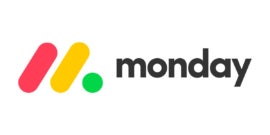
Legal firms can benefit from project management software just as much as any other business, but they also have specific needs that are unique. In this article, we’ve rounded up some of the top legal project management software that you should consider during your search.
Looking for more industry specific recommendations? Check out our top picks for the best healthcare project management software, the best project management software for construction and the best project management software for architects.
Jump to:
Lawyers and law firms must weigh many different factors when choosing legal project management software. This chart captures some of the most important factors to consider when considering legal project management software.
| Document management | Native time tracking | Billing & invoicing | Free trial or free plan | Pricing | |
|---|---|---|---|---|---|
| monday | Yes | Yes | Yes | Both | Starts at $8 per user per month |
| ClickUp | Yes | Yes | No | Both | Starts at $7 per user per month |
| MerusCase | Yes | Yes | Yes | Neither | Contact sales for quote |
| Wrike | Yes | Yes | Yes | Both | Starts at $9.80 per user per month |
| Clio | Yes | Yes | Yes | Free trial only | Starts at $49 per user per month |
| Smartsheet | No | Yes | No | Both | Starts at $7 per user per month |
| MyCase | Yes | Yes | Yes | Free trial only | Starts at $39 per user per month |
| Trello | No | No | No | Both | Starts at $5 per user per month |
| CASEpeer | Yes | Yes | Yes | Neither | Starts at $69 per user per month |
| Asana | Yes | Yes | No | Both | Starts at $10.99 per user per month |
monday work management is one of the most flexible and scalable project management solutions out there. While it’s not specifically designed for case management, law firms will find this to be a powerful and yet versatile tool for managing their caseload and office projects. It also offers a separate CRM product that integrates seamlessly with the work management solution in case you are looking for a way to manage prospective clients.
For more information, read the full monday work management review.
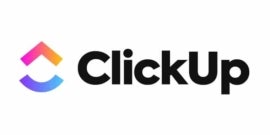
While ClickUp recently increased the cost of its entry-level premium subscription, it still offers a great combination of price and project management functionality. This powerful software packages robust features in a colorful, appealing interface, which is also why we named it one of the best creative project management software of 2023. The platform is also highly customizable, allowing you to structure projects, tasks and workflows according to your firm’s needs.
For more information, read the full ClickUp review.

MerusCase is a software platform created specifically for legal practices. It combines document management, time tracking and billing, and teamwork and collaboration. Merus offers a white glove onboarding service to make switching from legacy platforms easy on new clients. Resources for in-person training, live video training and self-guided on-demand training are also available.
MerusCase does not publicly disclose pricing information. You must contact the sales team for a quote.
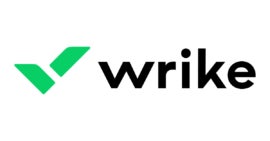
Wrike is one of the most full featured project management software platforms on the market today. It presents a steep learning curve, but it’s hard to beat when it comes to managing complex cases or many different cases at once. While not specifically designed for case management, Wrike includes a lot of features that law firms will find helpful, including time tracking and invoicing.
For more information, read the full Wrike review.
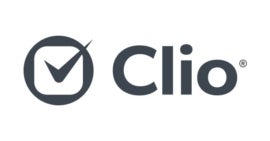
One of the most popular case management software platforms, Clio helps lawyers keep cases, contacts, bills and calendars organized in one place. Its two products, Clio Grow and Clio Manage, feature an intuitive design that is easy to navigate. Clio Grow streamlines the intake process to help you attract and onboard more prospective clients. Clio Manage has a centralized overview that shows upcoming appointments, finances, keys and more all on a single page.
A 7-day free trial is available for Clio. For the Essentials and Advanced plans, you can choose to add Clio Grow for $59 per user per month billed annually, or $49 per user per month billed annually.

If you are currently using Excel to project manage your law firm, then you should definitely check out Smartsheet. This software takes the familiar spreadsheet grid and elevates it with project management functionality. You can assign tasks, set due dates, notify colleagues and more — all within a familiar interface. That being said, Smartsheet’s design can feel a bit dated compared to some other alternatives, so if you’re not set on a spreadsheet-based interface, you might want to check out some other options on this list.
For more information, read the full Smartsheet review.
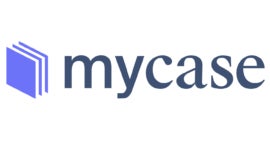
MyCase is another popular case management software that incorporates project management features as well. You can assign tasks to users, add workflows to cases and track the status of each case using the tool. Track billable hours, invoice clients and review financial reporting all in the MyCase interface. MyCase also provides case analytics so you can take a birds’ eye of how the file is doing or deep dive into a specific case.
A 10-day free trial is available for MyCase.
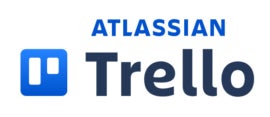
Trello is known for its intuitive Kanban boards, which use a card-like design to instantly display the status of tasks and projects. While not specifically designed for law firms, Trello offers a lot of excellent project management features in a visually appealing interface that is simple to navigate. Its entry-level pricing plans also start at only $5 per person per month, which is one of the most affordable price points out there.
For more information, read the full Trello review.

Unlike other legal project management software, which is usually targeted towards multiple kinds of firms, CASEpeer was specifically designed with personal injury law firms in mind. It provides both case and practice management features, helping your entire practice to stay on top of their tasks. It also includes medical treatment tracking that is especially beneficial for personal injury lawyers.
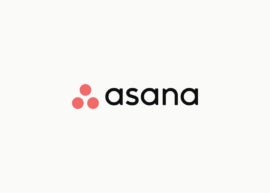
Asana is a general project management software that offers a forever free plan for teams of up to 15 people, with no limits on the number of tasks or projects that you can have. This makes it a great option for small law firms looking for a forever free software that isn’t too difficult to master. Asana’s simple approach to project management can’t match the more robust functionality of monday or ClickUp, but it offers a lower learning curve for beginners — which is why we also named it one of the best marketing project management software of 2023.
For more information, read the full Asana review.
Security and compliance is an especially big concern for law firms, so this should be one of your top concerns when looking for a legal project management software. Keep in mind that many platforms restrict their most advanced to the higher tier premium plans, so you might need to be willing to pay more in order to get the security protocols that you need to safeguard your case information.
Lawyers must manage heaps of documents everyday: contracts, will and testaments, NDAs and more. Ideally, you want a legal project management software that will let you upload and organize these documents in a cloud library. More advanced software will provide the ability to markup proofing files and e-sign the final version, all within the same system.
You should be able to create tasks under a specific case or project, assign it to a specific worker and set deadlines. You should also be able to choose from multiple project views like timeline (Gantt chart), board (Kanban) and grid (spreadsheet). The software should also include legal project management templates that are specific to your industry.
All great project management software includes features for collaborating with your team, including task comments, @ mentions, notifications and sometimes even a native chat function. Many platforms also include integrations for popular email clients and messaging tools like Slack so that your communication is seamless no matter what platform you are using.
The best legal project management software will include a native time tracking module that lets you track billable hours. That data should flow right over to an invoicing tool that makes it easy to create an invoice and bill clients. It should also include its own accounting features, or integrate with popular accounting programs such as QuickBooks.
When looking for a new legal project management software, the first decision that you need to make is whether you want specialized case management software or more general purpose project management software. Case management software is specifically designed for lawyers and will include helpful features, such as invoicing, that more general purpose project management software may not. However, the tradeoff is that case management software often has less powerful project management features, so it might not be robust enough for large firms that juggle a lot of cases at once.
You also need to decide on your budget. Dedicated case management software typically does not offer a forever free plan, which might be an impediment for small firms or solo lawyers just getting their start. Case management software also typically costs more than more general project management software, as you can see from the chart at the top. Choosing a free or lower cost general purpose project management software can help you stay on budget while you get a feel for what features you need.
You should also take advantage of free trials as well as demo calls with the sales team to help you narrow down your options. Forever free plans also give you the option to test the software on a more extended basis without time limits, but the features are often restricted. If you’re not totally sold on a platform, it might make more sense to pay for a month-to-month subscription at first, so you’re not locked into an annual contract if you decide to switch later on.
We reviewed these legal project management software based on a number of criteria, including pricing, ease of use, user interface design and the difficulty of the learning curve. We also weighed additional features such as document management, automation, project views, templates, time tracking and billing and invoicing. Additionally, we evaluated these platforms by consulting user reviews and product documentation.